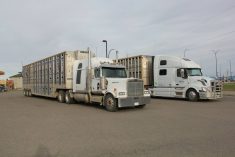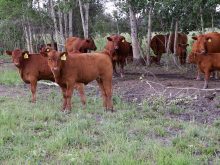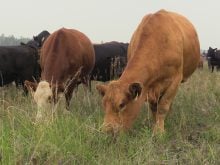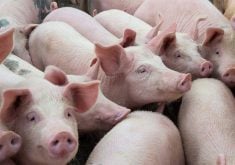A good neighbour policy goes a long way toward resolving and quelling conflicts in communities with large-scale swine operations.
A study by the University of Guelph in Ontario has found livestock operators can develop positive relationships in communities through “neighbourly acts,” said Wayne Caldwell of the university’s school of environmental design and rural development.
Those acts can include visiting local residents, letting the surrounding community know when manure will be applied or hiring local workers.
“Be sensitive to the neighbours,” he said, citing the importance of good communication between hog operators and the local community.
Read Also

Petition launched over grazing lease controversy
Battle continues between the need for generation of tax revenue from irrigation and the preservation of native grasslands in southern Alberta rural municipality.
Industry efforts to address consumer concerns are at least partly responsible for rising confidence in the Canadian pork industry, according to a study by Ipsos Reid.
That study measured perceptions of pork production in Alberta, Saskatchewan, Manitoba and Ontario between 1999 and 2004.
Nine of 10 participants were generally confident in the safety of Canadian pork and about half of respondents felt animals were well treated.
Environmental concerns around swine operations rose from the number four to the number two issue among consumers during the years of the study. Fifty-three percent of respondents described hog farming as environmentally unfriendly.
In Caldwell’s study, he found that such concern and negativity around the creation of new hog operations decreased in communities after the unit was operational.
His team interviewed 180 respondents living close to 50 swine barns over a five-year period. People are not as negative toward pig barns as some suggest, said Caldwell.
The study found only one percent of the respondents regularly complained, compared to the 84 percent who have never complained about such operations.
Caldwell was also surprised to learn neighbours grew more satisfied after intensive livestock operations upgraded their barns and handling systems.
The study found that 60 percent of the respondents did little differently after a barn was built, while others kept their windows closed, stopped hanging laundry outdoors or ceased outdoor functions.
Most alarming was the 10 percent who stopped drinking water from their taps, he said, citing the past associations between well water contamination and large feeding operations at Walkerton, Ont., and North Battleford, Sask.
Caldwell said future studies need to examine real versus perceived complaints to help operators better respond to community concerns.
Manitoba and Ontario already operate peer reviews where a panel reviews a complaint lodged against an operation and then makes recommendations to the producer.
“These are examples of producers dealing with conflicts,” he said.














